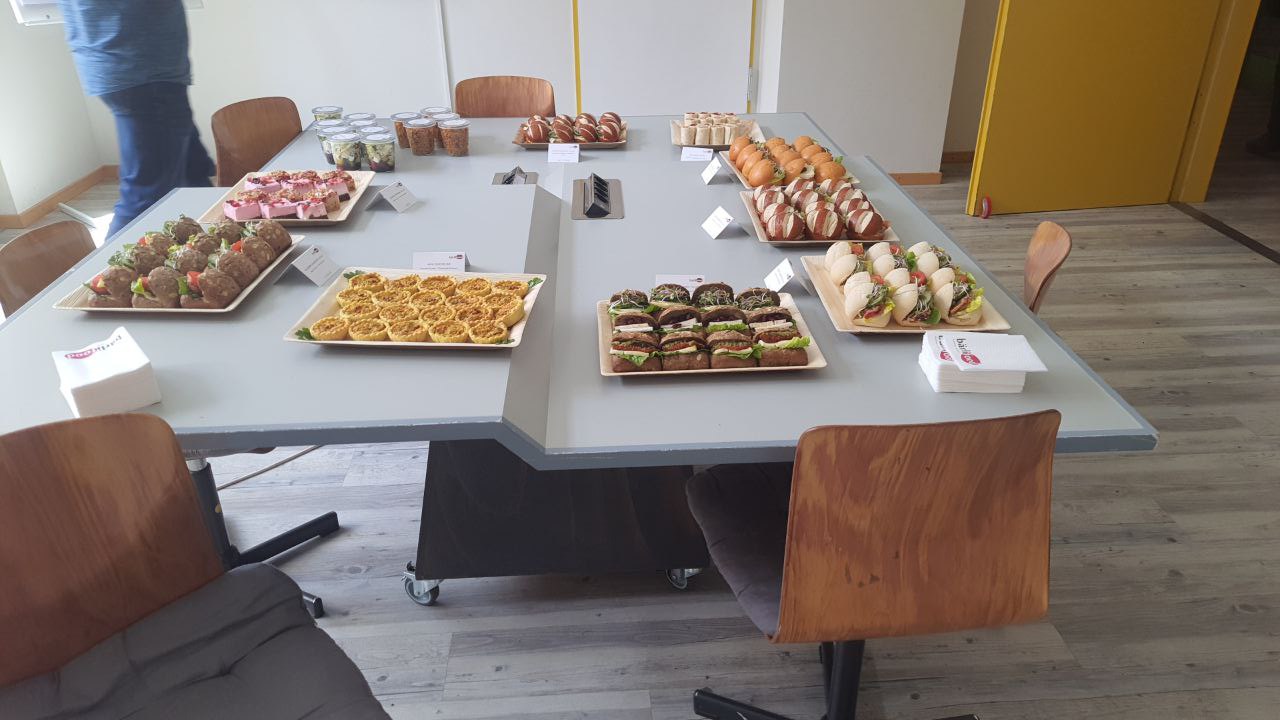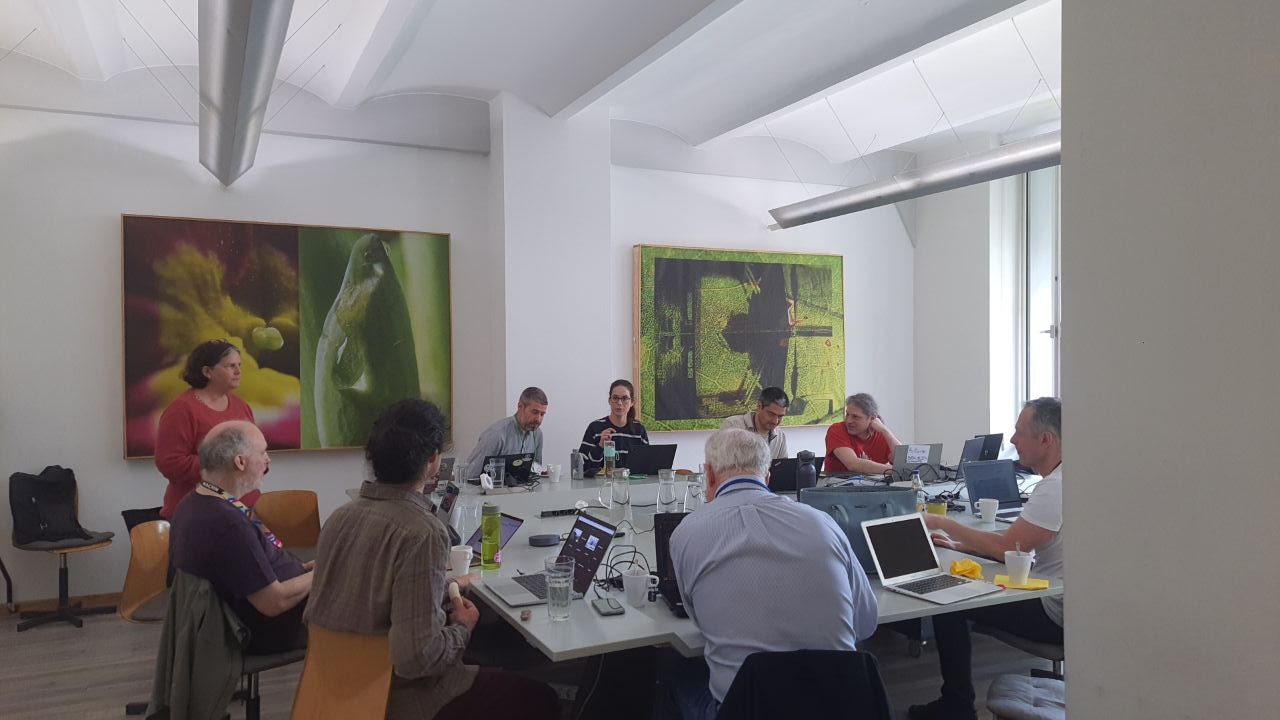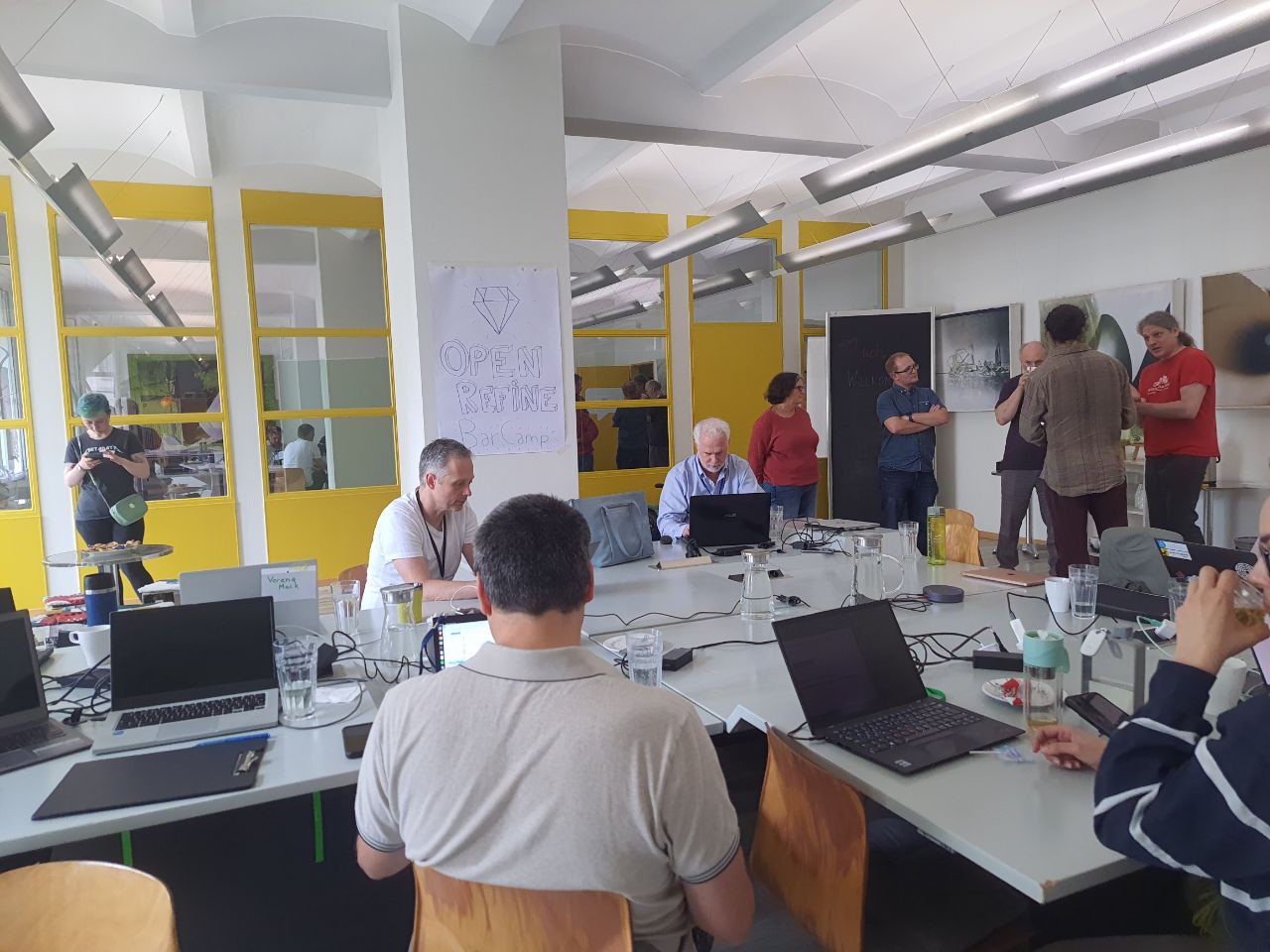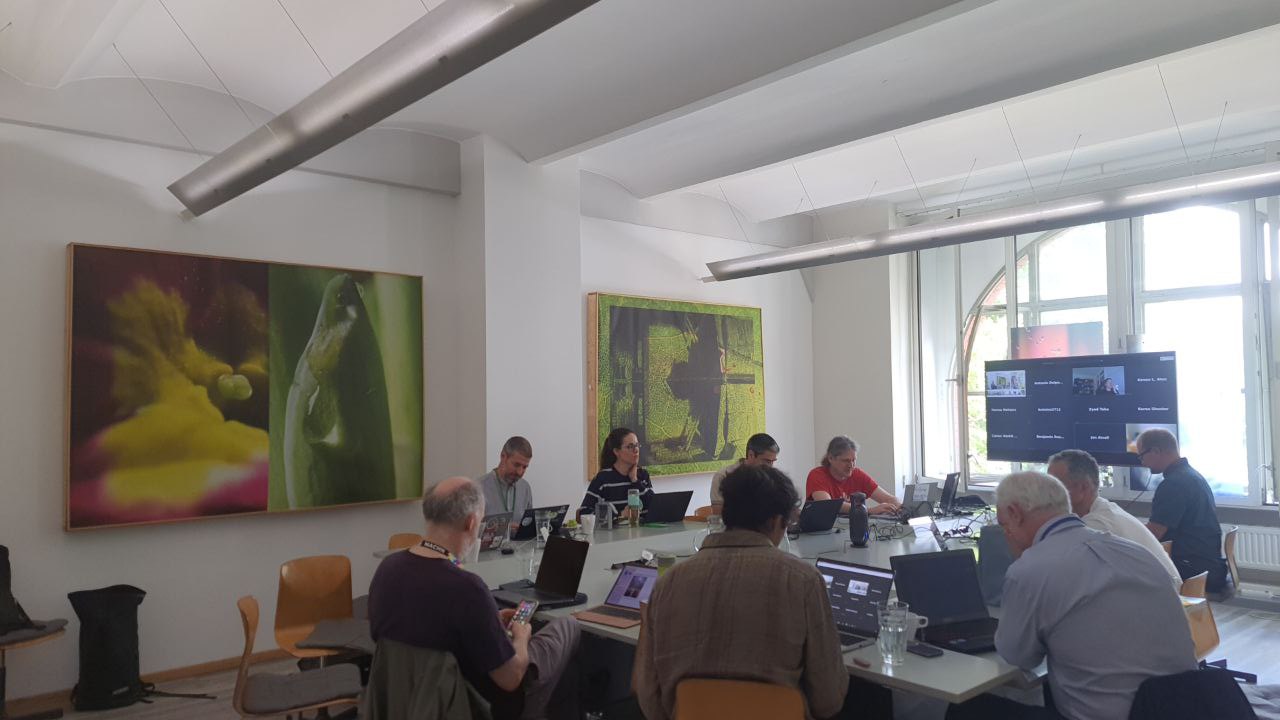Takeaways from OpenRefine's First Hybrid Barcamp
Earlier this year, inspired by ongoing conversations within the OpenRefine community, we decided to organize our first-ever hybrid Barcamp. This idea emerged from discussions about enhancing community engagement and collaboration. Our goal was to create a space where contributors could gather, share insights, and work together to improve OpenRefine. We decided to go with a barcamp format so attendees could set the agenda and discuss important topics for the community.
The Barcamp took place from June 16 to June 19, both online and in Berlin. There were 14 in-person participants and 15 remote attendees.
Here are the main takeaways and highlights from our event with a link to the summary of each session on our forum for you to continue the conversation.
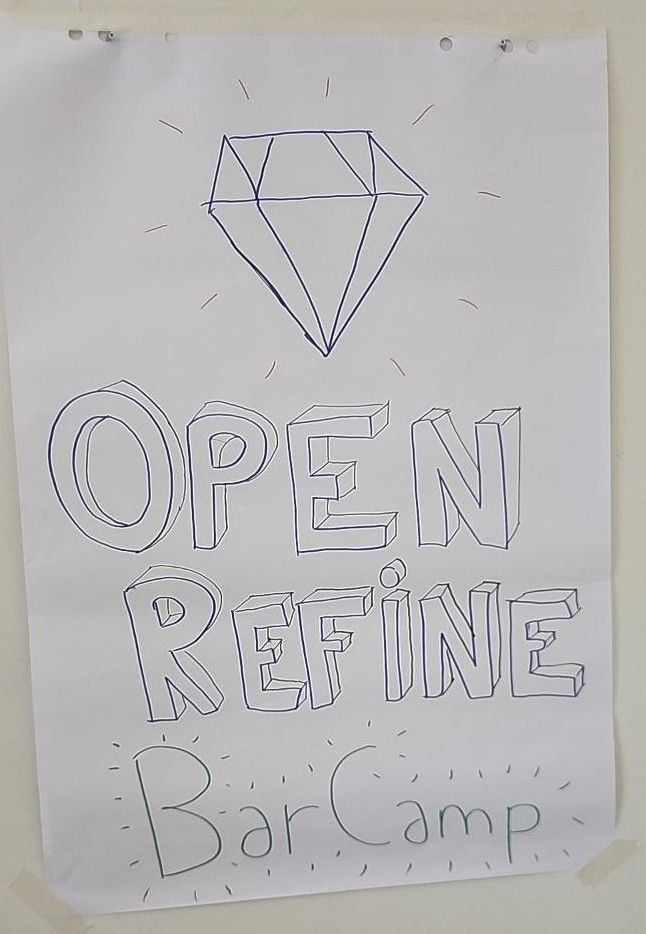
Before the event
We invited participants to suggest sessions using the Barcamp Session Proposal page. Other participants were able to comment on each session. At this stage, the goal was to socialize the topic of discussion rather than make the planning itself.
Monday
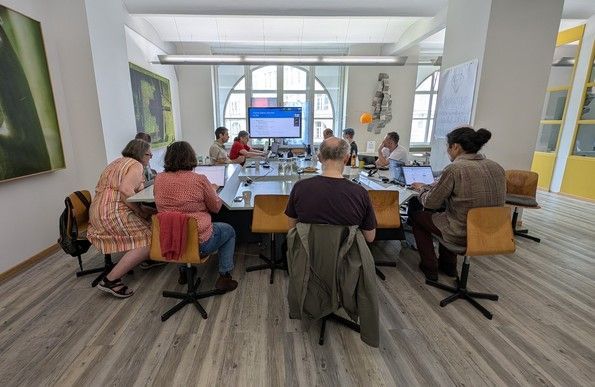
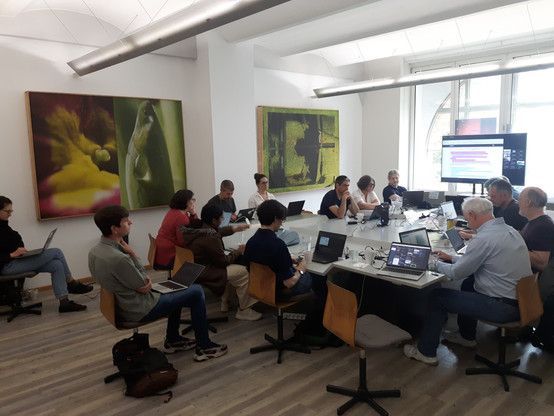
As it was our first BarCamp, we were still determining how much content we would have to accommodate a two-day-and-a-half conference. We initially set up Monday as a travel day with an optional session. Setting the morning as travel time worked well for those coming from North America and other European countries.
Monday morning was a travel day for participants. Later in the morning and afternoon, a small group of contributors arrived early at the event space to prepare the room (including adding signage for participants to find the room), set up, and test the audio and video materials.
We used the rest of the afternoon to get to know each other and discuss the next two days' agenda. It is important to note that most of the contributors present only interacted via the mailing list, forum, or GitHub. For the majority, it was their first live interaction.
Each person who proposed a session had 5 to 10 min to present it and other participants to ask questions to clarify and help refine the scope. This format gave us a sense of the community's interest and helped us determine how long we should set aside for each topic. One of the challenges at this stage was staying on track to only scope the session rather than discuss the topic. During the break, we invited online and in-person participants to vote and/or comment on the Barcamp platform.
After the session, we aggregated the votes in Google Documents. We then started discussing the scheduling of each session and identifying who would be the facilitator, the note-taker, and the stream-sitter. During the scheduling, we considered the time difference with North America and scheduled the most anticipated session to ensure maximum participants could attend.
Setting plenty of time for this exercise was a good point of the BarCamp. We were not stressed about the planning and had time to get to know each other and remove ambiguity around the proposition. Once the calendar was set up, a small group of volunteers updated the BarCamp website with the different sessions along with the Google Calendar so remote participants could see the schedule in their timezone.
For the next time, we should set a clearer event start time guideline. Because we set up the afternoon as optional, some participants had scheduling conflicts, and we did not have a full room.
At the end of the day, the group in Berlin went to a biergarten as a social activity.
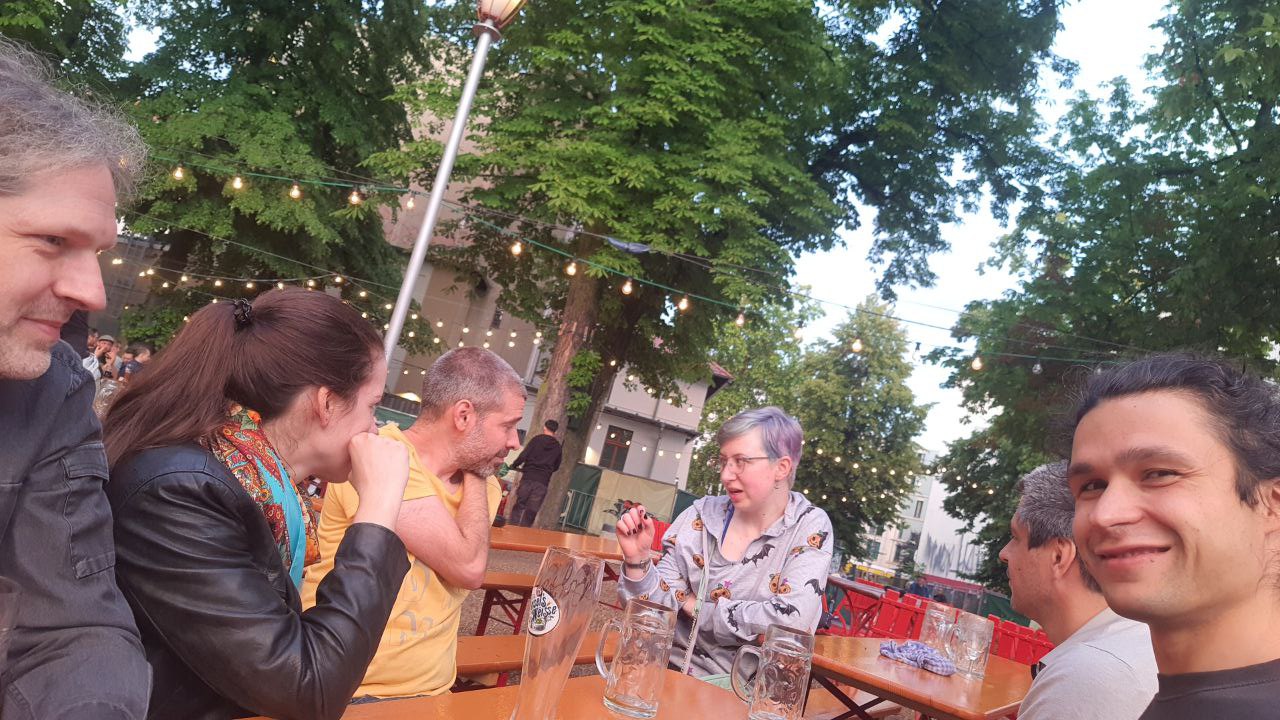
Tuesday��
Presentation of OpenRefine status (30 min)
References
Martin presented the progress update regarding the current grant, grant application, budget and upcoming plan for the next 12 to 18 months. We invite you to refer to the slide deck and video recording for more details.
If only OpenRefine could be more like ... (60 min)
References
This session was a roundtable where participants presented other software from which OpenRefine should take inspiration.
Making OpenRefine more useful as an exploratory tool
References
In this session, we discussed how crucial data visualization is for research. When you get new data, evaluating its quality and creating visual representations is important. However, doing this in OpenRefine is difficult because the interface needs better visualization features, and the facets need to be bigger. Currently, the process involves:
- Cleaning the data in OpenRefine.
- Exporting the data to create visualizations in R or Excel.
- Identifying any outliers.
- Going back to OpenRefine to address any issues that were identified.
- Repeating the process if further inconsistencies are discovered.
Support OpenAPI in OpenRefine
References
This session explored how OpenRefine can better integrate with the OpenAPI standard when
- During project creation
- When we add a column
- When doing reconciliation
- To publish update to the API endpoint
We also discussed the limitation of the Export to XML/JSON feature.
Clarifying OpenRefine's vision, mission and value
References
Bocoup hold a two hours workshop to present the results of their initial research and gather feedback. You can read more about the output of the session and continue the conversation on our forum.
Tuesday evening
We ended up Tuesday at a local pizzeria.
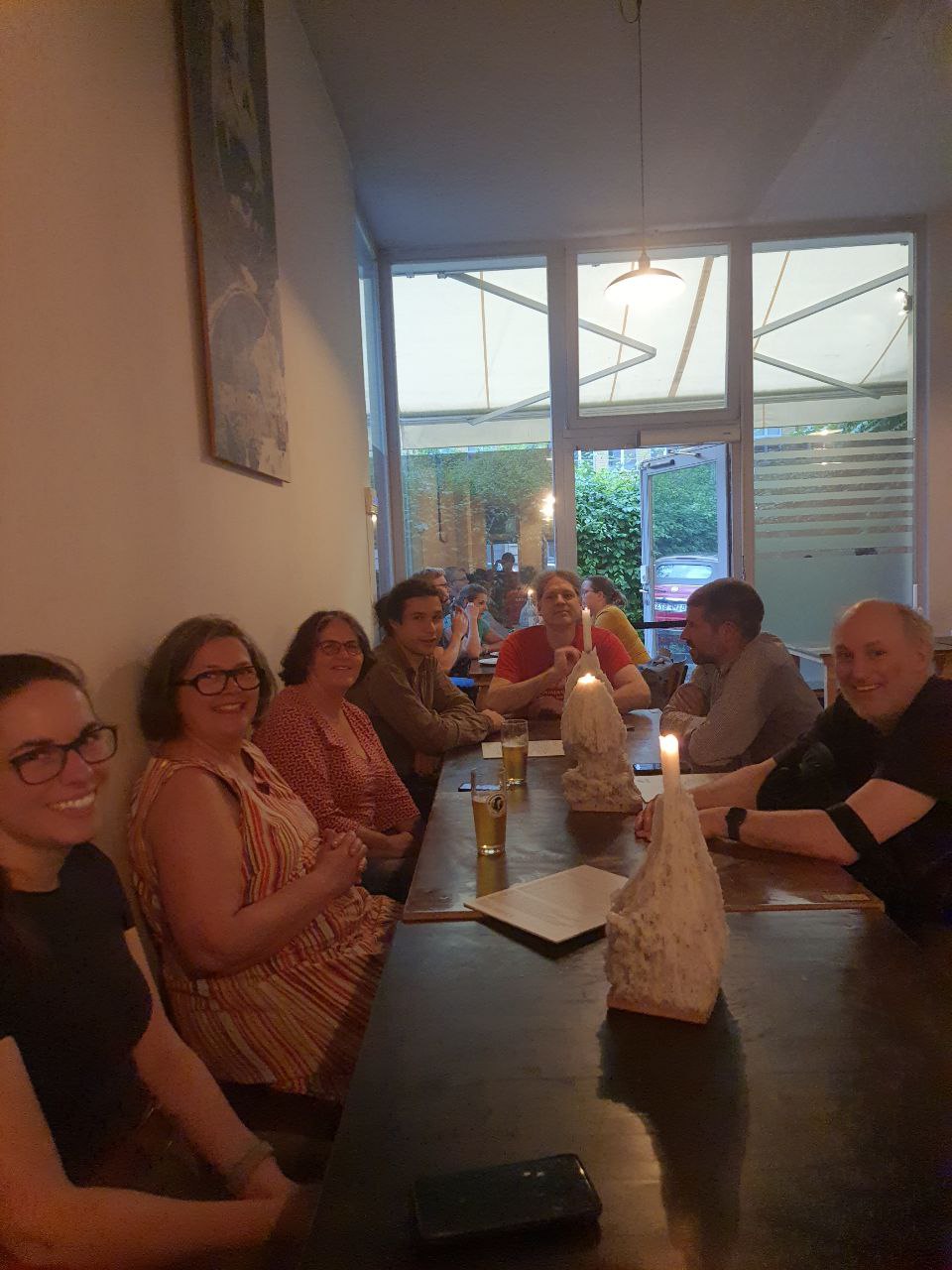
Wednesday
Improving contributors' pathways
References
This session focused on reviewing and enhancing the contributor guides for various roles within OpenRefine, particularly designers and support/helpdesk contributors. The discussion emphasized the need for clearer user experience leadership, better documentation, and more accessible design frameworks to support community engagement effectively.
Using OpenRefine with wikidata, wikibase and Wikimedia commons
References
- Barcamp page
- Forum thread summarizing the conversation. Notes are merged with the
Reconciliation in OpenRefinesessions
The session focused on the workflows and challenges of using OpenRefine with Wikidata, Wikibase, and Wikimedia Commons, noting the complexities of multi-step reconciliation and data preparation. Different use cases were presented, including integrating OpenRefine with GLAM projects and Wikibase instances. The need for better support, documentation, and collaboration between OpenRefine and Wikimedia communities was underscored.
Reconciliation in OpenRefine
References
- Barcamp page
- Forum thread summarizing the conversation. Notes are merged with the
Using OpenRefine with wikidata, wikibase and Wikimedia commonssessions - Thread open by Susanna Ånäs: Working group for reconciliation user interfaces
The session provided an update on recent developments in OpenRefine's reconciliation process, including a redesigned dialog that separates service selection and reduces the number of shown results to improve user experience. Antonin introduced the Entity Reconciliation Community Group, which aims to create a standard protocol for reconciliation services, operating independently of OpenRefine. Discussions focused on improving the user experience with better scoring and suggestion mechanisms, and clarifying roles to help users understand the different responsibilities of OpenRefine and external reconciliation services.
Approaches to training people to use OpenRefine
References
In this session, trainers shared their experiences and materials, emphasizing the importance of tailored content and practical exercises, such as "bring your own data" sessions. We discussed strategies for effective teaching, including the structure of training sessions, managing different skill levels, and providing ongoing support through office hours and webinars.
OpenRefine as a service
References
During this session we discussed different hosting scenarios for OpenRefine, and the needs for multi-user functionality. Toward the end of the session we covered implementing a public OpenRefine API to streamline workflows and the concept of user authentication for better access control.
Strategizing our roadmap for user needs
References
This session was highly productive, and help us strategize how we can continue the work on the different topic discussed during the Barcamp. We proposed using high-level epics or goalposts to effectively manage long-term goals and improve transparency. The group emphasized the importance of collaborative working groups and realistic timelines to align with our volunteer-driven efforts. The session also highlighted the potential benefits of introducing a product owner role to guide and refine our roadmap, fostering a structured yet flexible approach to project development.
Post Event Survey
We ran an post event survey to collect feedback and recieved 9 answers. We received 6 answers from in person participant and 3 from remote attendees.
The OpenRefine Barcamp, which brought together both in-person and online participants, was designed to foster community engagement and collaboration. Survey feedback indicated that most participants felt the event was appropriately timed (6 answers), although some thought it could have been longer (3 answers) to accommodate more in-depth discussions.
Participants who joined online had mixed experiences with Zoom, generally finding it fair (1 answer), good (3 answers) to excellent (1 answer), while the quality of video and audio was mostly satisfactory (1 excellent, 2 good, 2 average). The use of Telegram for chat was positively received (1 excellent, 8 good) by both online and in-person attendees, who found it easy to participate in conversations (2 excellent, 6 good and 1 average). However some participants found that following multiple conversation platforms simultaneously (zoom, etherpad, telegram) was challenging. In-person participants praised the event space at Tuechtig (4 excellent and 2 good) and the food served (6 excellent), with ratings ranging from good to excellent.
Communication before and during the event was also well-regarded (7 good, 1 excellent). Most respondents were pleased with the travel reimbursement process (2 good and 2 excellent). Encouragingly, a significant majority expressed interest in attending future Barcamps (8 yes, 1 maybe), underscoring the event's overall success. Some suggested to have more hands-on session like we do in hackhatons to write code or update the documentation.
Several participants indicated that they would take actions post-Barcamp to contribute more to OpenRefine, improve documentation, and engage with the community. Several appreciated the opportunity to connect with other contributors and sharing their experiences.
